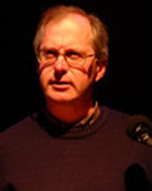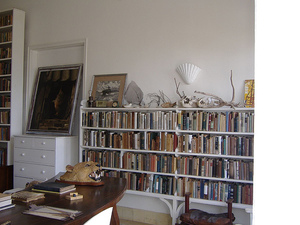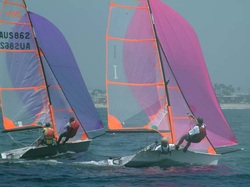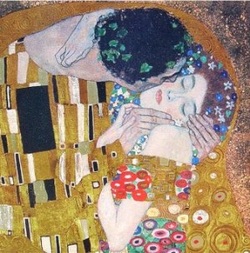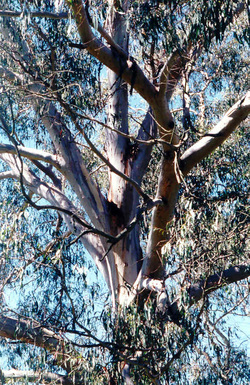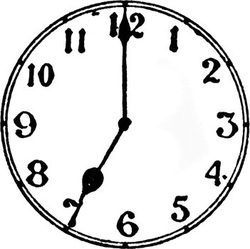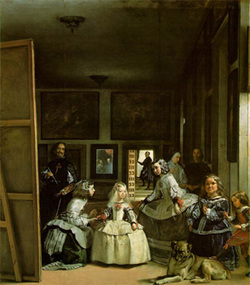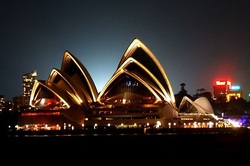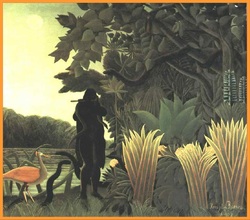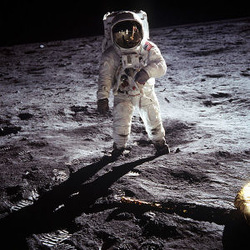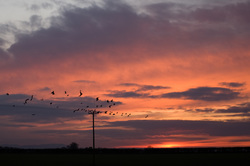Stephen Edgar
|
Born in Sydney in 1951, and now living there again after a long sojourn in Hobart, Stephen Edgar stands out among recent Australian poets for the perfection of his craft, a limitless wealth of cultural reference, and an unmatched ability to make science a living subject for lyrical verse. In 2004 he won the coveted Australian Book Review prize for poetry. His collection of 2003, Lost in the Foreground (Duffy and Snellgrove), attracted wide attention, which became wider still with Other Summers (Black Pepper), his collection of 2006: a daunting demonstration of what he could do in a mere two years to bring an already fully developed range of expressiveness to a new level of refinement. The ten poems here were chosen by the author from work not yet published in book form, or from his previous collections. The quickest way of summing up my appreciation of his mastery would be to say that if he were a jazz musician, he would be the kind who, when playing after hours, leads all the others to pack up their instruments and listen. In 2006 he was awarded the Philip Hodgins Memorial Medal.
|
The Secret Life of Books
They have their stratagems too, though they can't move.
They know their parts.
Like invalids long reconciled
To stillness, they do their work through others.
They have turned the world
To their own account by the twisting of hearts.
What do they have to say and how do they say it?
In the library
At night, or the sun room with its one
Curled thriller by the window, something
Is going on,
You may suspect, that you don't know of. Yet they
Need you. The time comes when you pick one up,
You who scoff
At determinism, the selfish gene.
Why this one? Look, already the blurb
Is drawing in
Some further text. The second paragraph
Calls for an atlas or a gazetteer;
That poem, spare
As a dead leaf's skeleton, coaxes
Your lexicon. Through you they speak
As through the sexes
A script is passed that lovers never hear.
They have you. In the end they have written you,
By the intrusion
Of their account of the world, so when
You come to think, to tell, to do,
You're caught between
Quotation marks, your heart's beat an allusion.
They know their parts.
Like invalids long reconciled
To stillness, they do their work through others.
They have turned the world
To their own account by the twisting of hearts.
What do they have to say and how do they say it?
In the library
At night, or the sun room with its one
Curled thriller by the window, something
Is going on,
You may suspect, that you don't know of. Yet they
Need you. The time comes when you pick one up,
You who scoff
At determinism, the selfish gene.
Why this one? Look, already the blurb
Is drawing in
Some further text. The second paragraph
Calls for an atlas or a gazetteer;
That poem, spare
As a dead leaf's skeleton, coaxes
Your lexicon. Through you they speak
As through the sexes
A script is passed that lovers never hear.
They have you. In the end they have written you,
By the intrusion
Of their account of the world, so when
You come to think, to tell, to do,
You're caught between
Quotation marks, your heart's beat an allusion.
The Sail and the Gannet
A single sail,
Translucent apricot,
Drifts like a poppy’s petal on a frail
Breeze that is not--
A baby’s breath
Of air sparingly strewn
And eked out by the estuary’s width
All afternoon.
Lit from behind,
That fabric puts on show
What all of this, when the sun has declined,
Will undergo,
When like a dye
Extravagantly loosed,
Late saffron through blue river and blue sky
Will be suffused.
Hours that require
Only themselves. Suspended,
Division and the eye dissolve, desire
Almost is mended.
The close of day
Approaches: echelons
Of shade and light ascend the river, grey
And flooded bronze.
That sail’s no more.
And out of nowhere looms
One gannet, sweeping up and down the shore,
In the gold glooms
Seeking the day’s
Last fish. So swift it flies
And circles and returns, rushing to appraise
What underlies
Its beat, it brings
A darker note into
The scene, as though to match the darkenings
That drain the view.
Too fast its flight
(And slightly desperate
Before the urgings of the loss of light)
To concentrate
Its faculties
On fish, it can’t be seeing,
You feel—or it’s this shadowing it sees,
And is now fleeing.
Translucent apricot,
Drifts like a poppy’s petal on a frail
Breeze that is not--
A baby’s breath
Of air sparingly strewn
And eked out by the estuary’s width
All afternoon.
Lit from behind,
That fabric puts on show
What all of this, when the sun has declined,
Will undergo,
When like a dye
Extravagantly loosed,
Late saffron through blue river and blue sky
Will be suffused.
Hours that require
Only themselves. Suspended,
Division and the eye dissolve, desire
Almost is mended.
The close of day
Approaches: echelons
Of shade and light ascend the river, grey
And flooded bronze.
That sail’s no more.
And out of nowhere looms
One gannet, sweeping up and down the shore,
In the gold glooms
Seeking the day’s
Last fish. So swift it flies
And circles and returns, rushing to appraise
What underlies
Its beat, it brings
A darker note into
The scene, as though to match the darkenings
That drain the view.
Too fast its flight
(And slightly desperate
Before the urgings of the loss of light)
To concentrate
Its faculties
On fish, it can’t be seeing,
You feel—or it’s this shadowing it sees,
And is now fleeing.
The Kiss
How can she do this now that it's all changed,
Present her lips to kiss
As though that known face were the same as this
From which you've been estranged?
Of course it is. Here, now? Or then and there?
How can she sit down in her cloud of hair
And watch you as though you were someone else?
You are, of course, to her.
You were this rendezvous's commissioner
And nobody compels
Your self-distressed attendance here but you.
So watch her do as only she can do.
She lifts her left hand to her left earlobe
And tugs the earring, slides
The hook half out and rubs at it and glides
It in, as its purple globe
Swings back and forth to tantalize your sight.
Soon she will do the same thing with the right.
A silver bracelet rides along one arm
Or settles at the wrist,
And lest adornment should seem prejudiced
The other has its charm
As well, made somehow perfect by the dent
That mars the curve of its encirclement.
And those two combs holding her hair in place,
Two combs of tortoiseshell--
And when she took them out, oh how it fell
At night around her face,
Which she would lift to you and shut her eyes,
That beauty come to seem beauty's disguise,
And whether by desire or candlelight,
Her skin took on a glow,
An alabaster lucency, and so
She leant back to invite
Your open-mouthed assent. And you would hold
That pose like two Klimt lovers cloaked in gold.
And that first night you slid the purple shift
Over her shoulders and
Peeled gently downwards, leaving her to stand
In Aphrodite's gift,
And sinking with her garment to the floor,
Made moist the shadowed fold you knelt before.
How can she do this now that you're estranged,
Stand in her cloud of hair
As though she were the same, though well aware
That everything is changed
(Of course she is), presenting for your kiss
The mouth that was the mouth that is not this.
Present her lips to kiss
As though that known face were the same as this
From which you've been estranged?
Of course it is. Here, now? Or then and there?
How can she sit down in her cloud of hair
And watch you as though you were someone else?
You are, of course, to her.
You were this rendezvous's commissioner
And nobody compels
Your self-distressed attendance here but you.
So watch her do as only she can do.
She lifts her left hand to her left earlobe
And tugs the earring, slides
The hook half out and rubs at it and glides
It in, as its purple globe
Swings back and forth to tantalize your sight.
Soon she will do the same thing with the right.
A silver bracelet rides along one arm
Or settles at the wrist,
And lest adornment should seem prejudiced
The other has its charm
As well, made somehow perfect by the dent
That mars the curve of its encirclement.
And those two combs holding her hair in place,
Two combs of tortoiseshell--
And when she took them out, oh how it fell
At night around her face,
Which she would lift to you and shut her eyes,
That beauty come to seem beauty's disguise,
And whether by desire or candlelight,
Her skin took on a glow,
An alabaster lucency, and so
She leant back to invite
Your open-mouthed assent. And you would hold
That pose like two Klimt lovers cloaked in gold.
And that first night you slid the purple shift
Over her shoulders and
Peeled gently downwards, leaving her to stand
In Aphrodite's gift,
And sinking with her garment to the floor,
Made moist the shadowed fold you knelt before.
How can she do this now that you're estranged,
Stand in her cloud of hair
As though she were the same, though well aware
That everything is changed
(Of course she is), presenting for your kiss
The mouth that was the mouth that is not this.
The Immortals
A breeze fills up the manna gum’s huge lung,
That hologram of bronchioles. It sways there
Tethered and shifting like a hot-air balloon
Preparing for some fresh and doomed attempt
To circle the great globe. Heaped at its base
The litter of shed bark and collapsed boughs,
So much dumped ballast. Across an expanse of lawn—
The cat’s savanna—a drowsing figure slouched
In an easy chair inhabits “Summertime”,
Living by emptying this gap of day:
A straw hat on her face like a cartoon peon,
Her right arm limply draped over the side,
Jehovah’s index finger pointing down
To where, half lost in the long grass, Daniel
Deronda’s lying in Daniel Deronda,
His pages palping at the air, as though
Blindly taking in what it all is like.
It is hard to imagine. The shallow bay
Offers up to the light the illusory depths
Of a table buffed and polished to a lustre,
Except where an inlet-wide, flung net of wind
Hauls at the panicked shoals of chop and dazzle.
High up the sky is pale as faded denim
Worn through in a few frayed clouds, but where it comes
To earth, a cyan heavier than air
And not to breathe. And sometimes in the evening
The whole space thinks again, and sky and sea
Lie in each other’s mirror, robed in gold
And self-absorbed against the envious land
They leach away, but for some failing islet
Or bluff that barely makes its presence felt.
Look, on her hand’s back are the clues to grief,
Whatever she may think—those patches like
The remnants of a suntan, veins as blue
As any sky could wish, swollen through skin
As beautiful as birch bark, and as frail--
The emblems of a loss that will see out
The ending of the world.
Persisting in some region of obtuse
Sublimity, and full of an inhuman,
Distant pity, he’ll contemplate her, baffled,
Then turn away perhaps like Beatrice
With her doubt-tainted smile. But he’ll be there.
The heat is a dimension now, like time,
And as improbable. The cottage floats,
Not quite convinced it’s happening, with its flies
And cracked linoleum, its shelves of books
Unaltered since the war, its bush-rat droppings,
The clocklike clicking of the roof—all tethered
To the least twitching of her dreaming fingers,
Her shallow breath. Later, before her friends
Descend, she’ll wander barefoot through the rooms
In something easy with an ice-filled glass
And put some music on and watch the sea.
That hologram of bronchioles. It sways there
Tethered and shifting like a hot-air balloon
Preparing for some fresh and doomed attempt
To circle the great globe. Heaped at its base
The litter of shed bark and collapsed boughs,
So much dumped ballast. Across an expanse of lawn—
The cat’s savanna—a drowsing figure slouched
In an easy chair inhabits “Summertime”,
Living by emptying this gap of day:
A straw hat on her face like a cartoon peon,
Her right arm limply draped over the side,
Jehovah’s index finger pointing down
To where, half lost in the long grass, Daniel
Deronda’s lying in Daniel Deronda,
His pages palping at the air, as though
Blindly taking in what it all is like.
It is hard to imagine. The shallow bay
Offers up to the light the illusory depths
Of a table buffed and polished to a lustre,
Except where an inlet-wide, flung net of wind
Hauls at the panicked shoals of chop and dazzle.
High up the sky is pale as faded denim
Worn through in a few frayed clouds, but where it comes
To earth, a cyan heavier than air
And not to breathe. And sometimes in the evening
The whole space thinks again, and sky and sea
Lie in each other’s mirror, robed in gold
And self-absorbed against the envious land
They leach away, but for some failing islet
Or bluff that barely makes its presence felt.
Look, on her hand’s back are the clues to grief,
Whatever she may think—those patches like
The remnants of a suntan, veins as blue
As any sky could wish, swollen through skin
As beautiful as birch bark, and as frail--
The emblems of a loss that will see out
The ending of the world.
Persisting in some region of obtuse
Sublimity, and full of an inhuman,
Distant pity, he’ll contemplate her, baffled,
Then turn away perhaps like Beatrice
With her doubt-tainted smile. But he’ll be there.
The heat is a dimension now, like time,
And as improbable. The cottage floats,
Not quite convinced it’s happening, with its flies
And cracked linoleum, its shelves of books
Unaltered since the war, its bush-rat droppings,
The clocklike clicking of the roof—all tethered
To the least twitching of her dreaming fingers,
Her shallow breath. Later, before her friends
Descend, she’ll wander barefoot through the rooms
In something easy with an ice-filled glass
And put some music on and watch the sea.
Incident at Grantley Manor
Seven o'clock, the time set in his mind
Like herbs displayed in aspic, as the chimes
Were striking. Then the squeaking of his shoes'
Black leather tread, pacing those measures down
The first-floor hall, where sunset's apricot
Was oozing nectar through the open doors.
Her voice, conspiratorial and astonished,
Called him across the bedroom's drowning cube
Towards the window. How well Miss Waterson
Remembers it: “Please come and look at this,
Mr Devine;” the clock on the mantelpiece
Rehearsing for the hour of seven. She pointed
Down. There, a moving picture on the lawn,
His father, like a patient whose long months
Of immobility meant learning afresh
The art of walking, climbing the light's green slope
Towards the summer house, looking intently
As though for a cuff link or a signature.
That evening he still thinks of, lying now,
No longer needing lessons for his legs,
How he cast back his glance and saw the windows
Blazing like cats' eyes on his uselessness,
And in that golden mirror, two gold figures
Recording him, two shadows of dark gold--
Miss Waterson (was it?) and another one--
And then took out his watch on which the hands
Were so meticulously assembling seven.
Young Emily, appointed just the week
Before, came rushing to the stairs—she'd seen
Him stumble—to advise Mr Devine
About his father's fall. And so, almost
Immobilized herself in that clinging syrup,
She observed the hall clock's quaint rendition of
Seven, the time set clearly in his mind
Like summer herbs in aspic, as the chimes
Were striking. Then the squeaking of his shoes'
Black leather tread, pacing those measures down
The corridor, where sunset's apricot
Was oozing nectar through the open doors.
Her voice, companionable but astonished,
Floated across the bedroom's drowning cube
As he descended. How well Miss Waterson
Remembers it: “Please come and look at this;”
And Emily, who had just been taken on
That week, came rushing to the window. She pointed
Down, smartly on the stroke of seven. There,
A moving picture on the lawn, was old
Mr Devine, like a patient whose long months
Of immobility meant learning afresh
The art of walking, climbing the light's green slope
Abstractedly towards the rose garden.
That evening he still thinks of, lying now,
No longer needing lessons for his legs,
How he cast back his glance and saw the windows
Glaring like cats' eyes on his helplessness,
And in that golden mirror, two gold figures
Gesticulating, two shadows of dark gold--
The new girl (was it?) and another one--
And then took out his watch on which the hands
Were so laboriously assembling seven.
Miss Waterson, with Emily behind her
In a panic, dashed to the stairs to find
Mr Devine, anxious to let him know
About his father's fall. And there they saw him,
Almost immobile in that clinging syrup,
And heard the hall clock's muffled tolling of
Seven, the time set firmly in his mind...
Like herbs displayed in aspic, as the chimes
Were striking. Then the squeaking of his shoes'
Black leather tread, pacing those measures down
The first-floor hall, where sunset's apricot
Was oozing nectar through the open doors.
Her voice, conspiratorial and astonished,
Called him across the bedroom's drowning cube
Towards the window. How well Miss Waterson
Remembers it: “Please come and look at this,
Mr Devine;” the clock on the mantelpiece
Rehearsing for the hour of seven. She pointed
Down. There, a moving picture on the lawn,
His father, like a patient whose long months
Of immobility meant learning afresh
The art of walking, climbing the light's green slope
Towards the summer house, looking intently
As though for a cuff link or a signature.
That evening he still thinks of, lying now,
No longer needing lessons for his legs,
How he cast back his glance and saw the windows
Blazing like cats' eyes on his uselessness,
And in that golden mirror, two gold figures
Recording him, two shadows of dark gold--
Miss Waterson (was it?) and another one--
And then took out his watch on which the hands
Were so meticulously assembling seven.
Young Emily, appointed just the week
Before, came rushing to the stairs—she'd seen
Him stumble—to advise Mr Devine
About his father's fall. And so, almost
Immobilized herself in that clinging syrup,
She observed the hall clock's quaint rendition of
Seven, the time set clearly in his mind
Like summer herbs in aspic, as the chimes
Were striking. Then the squeaking of his shoes'
Black leather tread, pacing those measures down
The corridor, where sunset's apricot
Was oozing nectar through the open doors.
Her voice, companionable but astonished,
Floated across the bedroom's drowning cube
As he descended. How well Miss Waterson
Remembers it: “Please come and look at this;”
And Emily, who had just been taken on
That week, came rushing to the window. She pointed
Down, smartly on the stroke of seven. There,
A moving picture on the lawn, was old
Mr Devine, like a patient whose long months
Of immobility meant learning afresh
The art of walking, climbing the light's green slope
Abstractedly towards the rose garden.
That evening he still thinks of, lying now,
No longer needing lessons for his legs,
How he cast back his glance and saw the windows
Glaring like cats' eyes on his helplessness,
And in that golden mirror, two gold figures
Gesticulating, two shadows of dark gold--
The new girl (was it?) and another one--
And then took out his watch on which the hands
Were so laboriously assembling seven.
Miss Waterson, with Emily behind her
In a panic, dashed to the stairs to find
Mr Devine, anxious to let him know
About his father's fall. And there they saw him,
Almost immobile in that clinging syrup,
And heard the hall clock's muffled tolling of
Seven, the time set firmly in his mind...
Diversions of a Painter
Near right, the dwarf Nicolasito
Prods to arouse with his black shoe’s
Diminutive and cheeky veto
The mastiff which would sooner snooze.
Next to him, quaintly beatific,
Eyes fixed on some unseen, specific
Point of focus, the squat buffoon
Maribárbola stands immune
To her surroundings. On the left hand,
Before a canvas turned form view,
The artist is included too,
Absorbed in observation, deft hand
Poised with a ready brush to set
Down—what? We do not know as yet.
Mid-foreground, pert with inattention
But still prepared to acquiesce
In this elaborate invention,
Is posed the five-year-old princess,
The setting’s dainty prima donna.
On either side, a maid of honour:
One knelt in tender protocol;
One tilted like a lifeless doll.
On the back wall what seems a painting
(Of king and queen?), alone among
The canvases which there are hung
In shadow, gleams distinctly. Tainting
With day the intimate half-gloom
Which stills that quarter of the room,
An open door presents its splendid
Oblong of light and, watching there,
A chamberlain is held suspended
With fascination of the stair.
The room seems spacious, only cluttered
By these few figures. They have shuttered
All but two windows on the right
Which shed their glow just out of sight.
Behind the doll-like maid a pair of
Superfluous attendants stand--
She, with turned face and gestured hand,
Prattling to him, quite unaware of
Her station. He, oblivious,
Stares at the canvas closed to us.
What is the painting in the painting,
If we could peep around the frame?
What subject was Velázquez feinting
In playing this reflexive game?
In one sense, nothing, for quite clearly,
The work within the work is merely
The canvas back and frame we see.
The full front is a fantasy.
As meaningless to pose the question
As ask what Hamlet might have done
Or said three days before Act One;
As fanciful as the suggestion
A living person could declare
That he is Don Quixote’s heir.
But art begins here to bamboozle.
What seemed a portrait on the wall
At first glance is, on close perusal,
Really a mirror after all.
The silvered king and queen, detected
In glass, turn out to be reflected
From that position where they pose
Beyond the scene the picture shows.
That canvas, then, is their depiction?
So it is they the small princess
And Maribárbola address?
Well, no; this is another fiction.
Those mirror images depict
No couple, but the viewer tricked.
An now you see his game, his clever
Subversion of the paradigm.
He’s playing with you, viewer, whoever
You are, or where, or in what time.
He’s almost starting to unnerve you,
For aren’t you placed within his purview
Precisely where the subject is?
It’s you that hooded gaze of his,
Standing back from the work, assesses
Within the work, or turns towards.
It’s you the portraitist records.
You’re the buffoon’s and the princess’s
Focus. Found out through time, you’re brought
To notice in the Spanish court.
Enough, though, of these artful cruces.
How did he really paint the thing?
Mirrors may answer many uses.
He placed one where the questioning
Spectator stands, in which reflexion
The room lay bare to his inspection:
Dog, dwarfs, princess, maids, chamberlain
Arrested and entranced within
His block of light, and, there to haunt us,
Velázquez too, brush poised before
An edge of frame. But there is more.
The ghost of mirrors comes to haunt us
Now, for the picture that, we know,
Is in the picture has on show
Another easel (and a painter,
Dog, dwarfs, princess, maids, chamberlain,
Servants) which has a picture—fainter
Smaller—which has an easel, in
A spiral traced through time and distance
With its grotesque counterexistence.
Around each corner of a frame
You’ll be confronted by the same,
Chasing Velázquez from this idyll
Of courtly life beyond the rhyme
Of reason, beyond eye and time.
(The only way to solve the riddle,
Cut short the regress, end the doubt?
Reach in and drag that canvas out.)
Prods to arouse with his black shoe’s
Diminutive and cheeky veto
The mastiff which would sooner snooze.
Next to him, quaintly beatific,
Eyes fixed on some unseen, specific
Point of focus, the squat buffoon
Maribárbola stands immune
To her surroundings. On the left hand,
Before a canvas turned form view,
The artist is included too,
Absorbed in observation, deft hand
Poised with a ready brush to set
Down—what? We do not know as yet.
Mid-foreground, pert with inattention
But still prepared to acquiesce
In this elaborate invention,
Is posed the five-year-old princess,
The setting’s dainty prima donna.
On either side, a maid of honour:
One knelt in tender protocol;
One tilted like a lifeless doll.
On the back wall what seems a painting
(Of king and queen?), alone among
The canvases which there are hung
In shadow, gleams distinctly. Tainting
With day the intimate half-gloom
Which stills that quarter of the room,
An open door presents its splendid
Oblong of light and, watching there,
A chamberlain is held suspended
With fascination of the stair.
The room seems spacious, only cluttered
By these few figures. They have shuttered
All but two windows on the right
Which shed their glow just out of sight.
Behind the doll-like maid a pair of
Superfluous attendants stand--
She, with turned face and gestured hand,
Prattling to him, quite unaware of
Her station. He, oblivious,
Stares at the canvas closed to us.
What is the painting in the painting,
If we could peep around the frame?
What subject was Velázquez feinting
In playing this reflexive game?
In one sense, nothing, for quite clearly,
The work within the work is merely
The canvas back and frame we see.
The full front is a fantasy.
As meaningless to pose the question
As ask what Hamlet might have done
Or said three days before Act One;
As fanciful as the suggestion
A living person could declare
That he is Don Quixote’s heir.
But art begins here to bamboozle.
What seemed a portrait on the wall
At first glance is, on close perusal,
Really a mirror after all.
The silvered king and queen, detected
In glass, turn out to be reflected
From that position where they pose
Beyond the scene the picture shows.
That canvas, then, is their depiction?
So it is they the small princess
And Maribárbola address?
Well, no; this is another fiction.
Those mirror images depict
No couple, but the viewer tricked.
An now you see his game, his clever
Subversion of the paradigm.
He’s playing with you, viewer, whoever
You are, or where, or in what time.
He’s almost starting to unnerve you,
For aren’t you placed within his purview
Precisely where the subject is?
It’s you that hooded gaze of his,
Standing back from the work, assesses
Within the work, or turns towards.
It’s you the portraitist records.
You’re the buffoon’s and the princess’s
Focus. Found out through time, you’re brought
To notice in the Spanish court.
Enough, though, of these artful cruces.
How did he really paint the thing?
Mirrors may answer many uses.
He placed one where the questioning
Spectator stands, in which reflexion
The room lay bare to his inspection:
Dog, dwarfs, princess, maids, chamberlain
Arrested and entranced within
His block of light, and, there to haunt us,
Velázquez too, brush poised before
An edge of frame. But there is more.
The ghost of mirrors comes to haunt us
Now, for the picture that, we know,
Is in the picture has on show
Another easel (and a painter,
Dog, dwarfs, princess, maids, chamberlain,
Servants) which has a picture—fainter
Smaller—which has an easel, in
A spiral traced through time and distance
With its grotesque counterexistence.
Around each corner of a frame
You’ll be confronted by the same,
Chasing Velázquez from this idyll
Of courtly life beyond the rhyme
Of reason, beyond eye and time.
(The only way to solve the riddle,
Cut short the regress, end the doubt?
Reach in and drag that canvas out.)
Diversionary Tactics
Surely, here at the heart of things,
Here is the ideal place for the attempt,
Here where the Christmas sales dispose
Their day-late offerings
(From which, it seems, scarcely a soul’s exempt):
Whitegoods and videos,
The manchester, the saucepans and CDs,
The swimwear, lingerie that sings
The body and its moistening promises.
In parks and by the harbourside,
Along the crescent from the Opera House
To Lady... Mrs Macquarie’s Chair,
They saunter, stroll and stride
In variegated thousands with the nous,
The timing and the flair
Of cast auditions for the late Buñuel
(Where the surreal is satisfied
In the plain day), determined to be well.
But on the train, leave them behind.
Among the suburbs summer has its way
And foreign scripts on once habitual
Shopfronts flash to remind
The joggling passenger that still today
Continues the old ritual
With a new but undeflectable endeavour,
For all that childhood has resigned
Its codes and haloed circumstance forever.
A few more stops and the wide blue bay
Waits with its yachts and dinghies and houseboats,
And around the shore big houses dream
In glass. Not far away
The beach calls in like promissory notes
Its combers, down which teem
With barefoot mastery boys who improvise
Diagonals across the play
Of wave and dazzle and their girlfriends’ eyes,
But make no difference. And so
Just down these steps, along where that car turned,
The ranks of roses, the grass floor,
The notices that show
The times, even the names of those concerned:
James Whelan, Dulcie Moore,
Baby Joanna Harrington — and the eye,
Drawn by a low-pitched tremolo,
Watches the fine smudge rise in the summer sky.
Here is the ideal place for the attempt,
Here where the Christmas sales dispose
Their day-late offerings
(From which, it seems, scarcely a soul’s exempt):
Whitegoods and videos,
The manchester, the saucepans and CDs,
The swimwear, lingerie that sings
The body and its moistening promises.
In parks and by the harbourside,
Along the crescent from the Opera House
To Lady... Mrs Macquarie’s Chair,
They saunter, stroll and stride
In variegated thousands with the nous,
The timing and the flair
Of cast auditions for the late Buñuel
(Where the surreal is satisfied
In the plain day), determined to be well.
But on the train, leave them behind.
Among the suburbs summer has its way
And foreign scripts on once habitual
Shopfronts flash to remind
The joggling passenger that still today
Continues the old ritual
With a new but undeflectable endeavour,
For all that childhood has resigned
Its codes and haloed circumstance forever.
A few more stops and the wide blue bay
Waits with its yachts and dinghies and houseboats,
And around the shore big houses dream
In glass. Not far away
The beach calls in like promissory notes
Its combers, down which teem
With barefoot mastery boys who improvise
Diagonals across the play
Of wave and dazzle and their girlfriends’ eyes,
But make no difference. And so
Just down these steps, along where that car turned,
The ranks of roses, the grass floor,
The notices that show
The times, even the names of those concerned:
James Whelan, Dulcie Moore,
Baby Joanna Harrington — and the eye,
Drawn by a low-pitched tremolo,
Watches the fine smudge rise in the summer sky.
Contents Page
The jungle, from the floor to the canopy,
Clogs and entwines
Its every rung and level with rank growth.
The python dines
Among an epiphytic gaudery
And hungry vines.
On the mizzled hair of the two-toed sloth
Moss has designs.
Yet all that climbing tonnage is content-free.
The top limbs sway as though to write in air,
But can’t remember what they scribble there.
Through the savanna’s heat-glaze the herds pause,
Ripple and shiver,
Or graze hypnotically, or drop their young,
Which may deliver
Their wet thin steps into the lion’s jaws.
By pool or river
They stoop at evening side by side among
The surface quiver
Of their reflexions as the light withdraws:
A fable set down in invisible ink;
They print their shadows on the pool they drink.
Even the perfect pictures in the shale’s
Slow-motion traps,
The filamentous feathers, which one or two
Sharp hammer taps
Release, the fish in their meticulous scales,
The precise maps
Of leaves, did not direct this rendezvous.
They’re simply gaps
In time, and have no part in these details.
The weird wiwaxias, worms and arthropods
Were empty of intention as stone gods.
Once, though, a figure had the thought to crawl
Out of the day
Into a cave’s dark reach, its first invoker,
And there to splay
His hand against the tallow-glimmered wall,
And pause to spray
His mouth’s cargo of spittle and red ochre
On the array
Of his five fingers, clear, indelible:
Author and content of the space displayed,
The maker’s hand becoming what it made.
Clogs and entwines
Its every rung and level with rank growth.
The python dines
Among an epiphytic gaudery
And hungry vines.
On the mizzled hair of the two-toed sloth
Moss has designs.
Yet all that climbing tonnage is content-free.
The top limbs sway as though to write in air,
But can’t remember what they scribble there.
Through the savanna’s heat-glaze the herds pause,
Ripple and shiver,
Or graze hypnotically, or drop their young,
Which may deliver
Their wet thin steps into the lion’s jaws.
By pool or river
They stoop at evening side by side among
The surface quiver
Of their reflexions as the light withdraws:
A fable set down in invisible ink;
They print their shadows on the pool they drink.
Even the perfect pictures in the shale’s
Slow-motion traps,
The filamentous feathers, which one or two
Sharp hammer taps
Release, the fish in their meticulous scales,
The precise maps
Of leaves, did not direct this rendezvous.
They’re simply gaps
In time, and have no part in these details.
The weird wiwaxias, worms and arthropods
Were empty of intention as stone gods.
Once, though, a figure had the thought to crawl
Out of the day
Into a cave’s dark reach, its first invoker,
And there to splay
His hand against the tallow-glimmered wall,
And pause to spray
His mouth’s cargo of spittle and red ochre
On the array
Of his five fingers, clear, indelible:
Author and content of the space displayed,
The maker’s hand becoming what it made.
Man on the Moon
Hardly a feature in the evening sky
As yet—near the horizon the cold glow
Of rose and mauve which, as you look on high,
Deepens to Giotto’s dream of indigo.
Hardly a star as yet. And then that frail
Sliver of moon like a thin peel of soap
Gouged by a nail, or the paring of a nail:
Slender enough repository of hope.
There was no lack of hope when thirty-five
Full years ago they sent up the Apollo--
Two thirds of all the years I’ve been alive.
They let us out of school, so we could follow
The broadcast of that memorable scene,
Crouching in Mr Langshaw’s tiny flat,
The whole class huddled round the TV screen.
There’s not much chance, then, of forgetting that.
And for the first time ever I think now,
As though it were a memory, that you
Were in the world then and alive, and how
Down time’s long labyrinthine avenue
Eventually you’d bring yourself to me,
With no excessive haste and none too soon--
As memorable in my history
As that small step for man onto the moon.
How pitiful and inveterate the way
We view the paths by which our lives descended
From the far past down to the present day
And fancy those contingencies intended,
A secret destiny planned in advance
Where what is done is as it must be done
For us alone. When really it’s all chance
And the special one might have been anyone.
The paths that I imagined to have come
Together and for good have simply crossed
And carried on. And that delirium
We found is cold and sober now and lost.
The crescent moon, to quote myself, lies back,
A radiotelescope propped to receive
The signals of the circling zodiac.
I send my thoughts up, wishing to believe
That they might strike the moon and be transferred
To where you are and find or join your own.
Don’t smile. I know the notion is absurd,
And everything I think, I think alone.
As yet—near the horizon the cold glow
Of rose and mauve which, as you look on high,
Deepens to Giotto’s dream of indigo.
Hardly a star as yet. And then that frail
Sliver of moon like a thin peel of soap
Gouged by a nail, or the paring of a nail:
Slender enough repository of hope.
There was no lack of hope when thirty-five
Full years ago they sent up the Apollo--
Two thirds of all the years I’ve been alive.
They let us out of school, so we could follow
The broadcast of that memorable scene,
Crouching in Mr Langshaw’s tiny flat,
The whole class huddled round the TV screen.
There’s not much chance, then, of forgetting that.
And for the first time ever I think now,
As though it were a memory, that you
Were in the world then and alive, and how
Down time’s long labyrinthine avenue
Eventually you’d bring yourself to me,
With no excessive haste and none too soon--
As memorable in my history
As that small step for man onto the moon.
How pitiful and inveterate the way
We view the paths by which our lives descended
From the far past down to the present day
And fancy those contingencies intended,
A secret destiny planned in advance
Where what is done is as it must be done
For us alone. When really it’s all chance
And the special one might have been anyone.
The paths that I imagined to have come
Together and for good have simply crossed
And carried on. And that delirium
We found is cold and sober now and lost.
The crescent moon, to quote myself, lies back,
A radiotelescope propped to receive
The signals of the circling zodiac.
I send my thoughts up, wishing to believe
That they might strike the moon and be transferred
To where you are and find or join your own.
Don’t smile. I know the notion is absurd,
And everything I think, I think alone.
Silk Screen
Furnished across a table,
The long provisions of midafternoon:
The cups, according as each tongue is able
To stand the heat, more or less full, and strewn
About a slewed and wrinkled
Expanse of damask that is crumb-besprinkled
With biscuit, scone and cake,
Freighted with plates and variously stained.
A gathering suffused with the slight ache
Of an old familial boredom, unexplained,
Transacted intimately.
Behind the group the windowed estuary,
Which until now had been
Delayed among such subtleties as those
Played out inside, too dull to make a scene,
Emerges from its featureless repose.
Now as the winter light
Sinks yet one more degree into respite,
Its talcum powder greys,
Ranked far towards the city, screen on screen,
Bewitchingly detain what they erase,
Assembling a new scene from the unseen,
So that the pooled and pleated
Spread of river, tree stencils, mist-deleted
Bluffs and bays, the tiers
Of suburbs from the foreshore’s basque of foam
Up to the foothills—everything inheres
Ghosted behind a wash of monochrome.
A shadow light invades
Cloud, water, slopes: so many Chinese grades
Of columbine and pearl,
Layered against a parquetry of pewter,
Gunmetal plates and sheets of faded merle.
Uncolours lost to colour, rendered neuter
(A glintless skyey sheen
Of eau de nil that is bankrupt of green,
A Copenhagen blue
Deprived of blue), obsessing concentration
By drawing each declared outline and hue
Into a hushed grisaille of intimation.
Through mantling of matt silk
Seeps a pine rumour. Drowned in shadowed milk,
Loomings ride up and swim
Of breath-faint hulls and mastheads. Over there on
The docks, some gantry stain behind the scrim
Stands groping. Steeped in day, a half-guessed heron
Silently intercedes
Among the lead-lit shallows where it feeds.
And now, melting as if
Oozed from the river’s deep to its bleared bank,
One solitary blush mark, a rose gliff
Of sun, escapes the cloud on the mountain’s flank
And instantly instils
A drop of dye that quickens where it spills.
Absorbed into the screen
They’re ranged against, the figures face to face,
Sipping and mumbling cake, chatting between
Mouthfuls, become still shadows at its base
To at least one pair of eyes,
For which the window mounts its final guise.
The sun cannot resist
Showing the flag of imperial Japan
(Except translucent, moted with the mist),
Whose bars of apricot and salmon fan
That band of liquor which
Their deepening audacities enrich.
The river’s ash and nacre
Are flooded where the crimsons grow across,
And as those figures dim to simulacra
Tableaued in black, the screen redeems its loss,
Ransoming in red
The colours afternoon had forfeited.
The long provisions of midafternoon:
The cups, according as each tongue is able
To stand the heat, more or less full, and strewn
About a slewed and wrinkled
Expanse of damask that is crumb-besprinkled
With biscuit, scone and cake,
Freighted with plates and variously stained.
A gathering suffused with the slight ache
Of an old familial boredom, unexplained,
Transacted intimately.
Behind the group the windowed estuary,
Which until now had been
Delayed among such subtleties as those
Played out inside, too dull to make a scene,
Emerges from its featureless repose.
Now as the winter light
Sinks yet one more degree into respite,
Its talcum powder greys,
Ranked far towards the city, screen on screen,
Bewitchingly detain what they erase,
Assembling a new scene from the unseen,
So that the pooled and pleated
Spread of river, tree stencils, mist-deleted
Bluffs and bays, the tiers
Of suburbs from the foreshore’s basque of foam
Up to the foothills—everything inheres
Ghosted behind a wash of monochrome.
A shadow light invades
Cloud, water, slopes: so many Chinese grades
Of columbine and pearl,
Layered against a parquetry of pewter,
Gunmetal plates and sheets of faded merle.
Uncolours lost to colour, rendered neuter
(A glintless skyey sheen
Of eau de nil that is bankrupt of green,
A Copenhagen blue
Deprived of blue), obsessing concentration
By drawing each declared outline and hue
Into a hushed grisaille of intimation.
Through mantling of matt silk
Seeps a pine rumour. Drowned in shadowed milk,
Loomings ride up and swim
Of breath-faint hulls and mastheads. Over there on
The docks, some gantry stain behind the scrim
Stands groping. Steeped in day, a half-guessed heron
Silently intercedes
Among the lead-lit shallows where it feeds.
And now, melting as if
Oozed from the river’s deep to its bleared bank,
One solitary blush mark, a rose gliff
Of sun, escapes the cloud on the mountain’s flank
And instantly instils
A drop of dye that quickens where it spills.
Absorbed into the screen
They’re ranged against, the figures face to face,
Sipping and mumbling cake, chatting between
Mouthfuls, become still shadows at its base
To at least one pair of eyes,
For which the window mounts its final guise.
The sun cannot resist
Showing the flag of imperial Japan
(Except translucent, moted with the mist),
Whose bars of apricot and salmon fan
That band of liquor which
Their deepening audacities enrich.
The river’s ash and nacre
Are flooded where the crimsons grow across,
And as those figures dim to simulacra
Tableaued in black, the screen redeems its loss,
Ransoming in red
The colours afternoon had forfeited.
